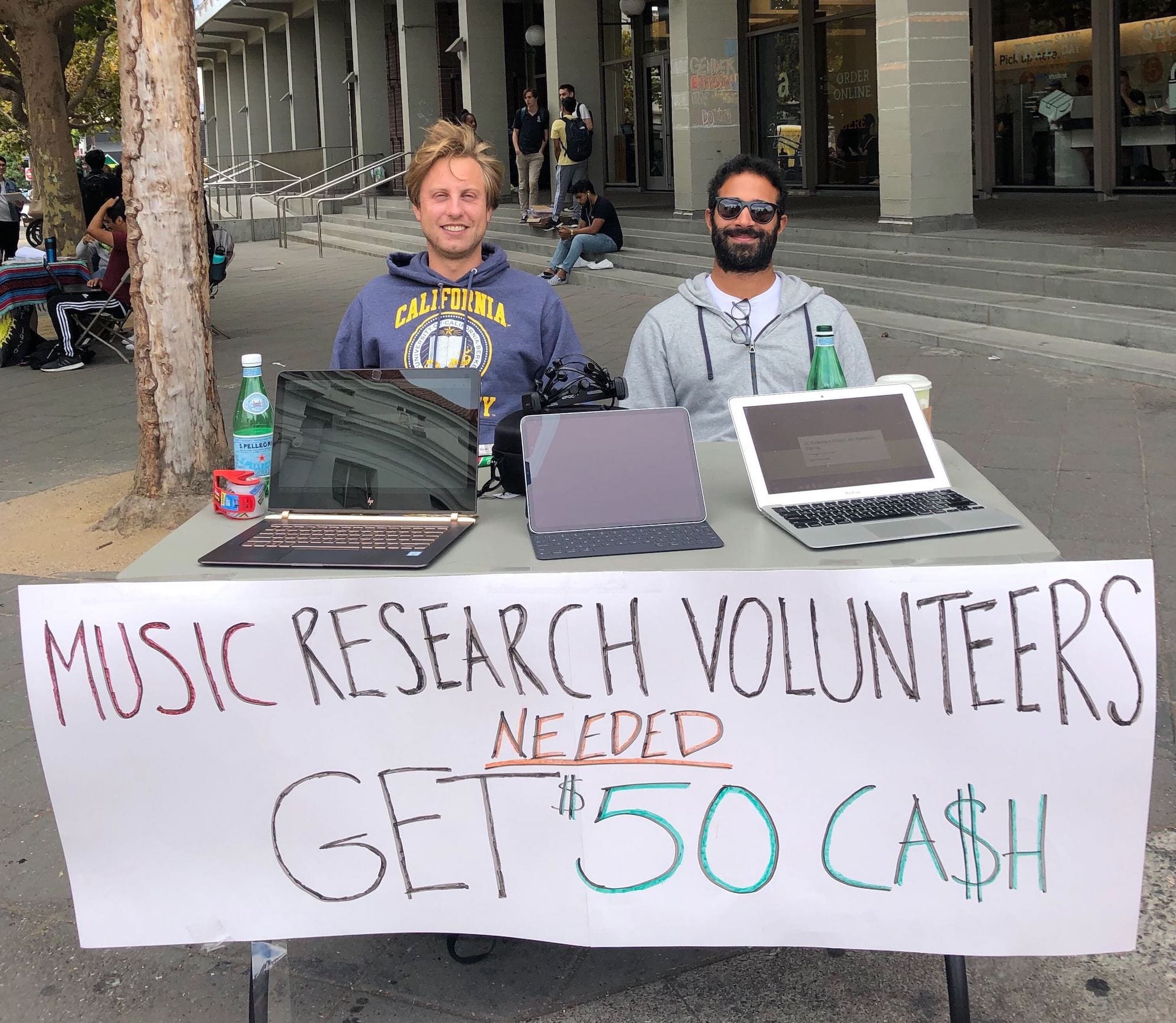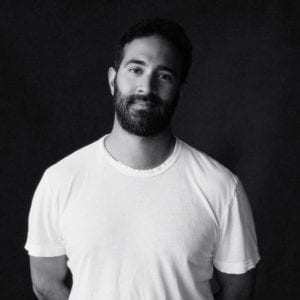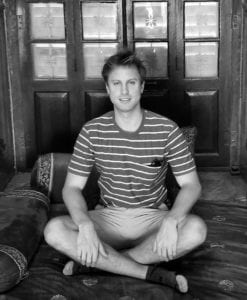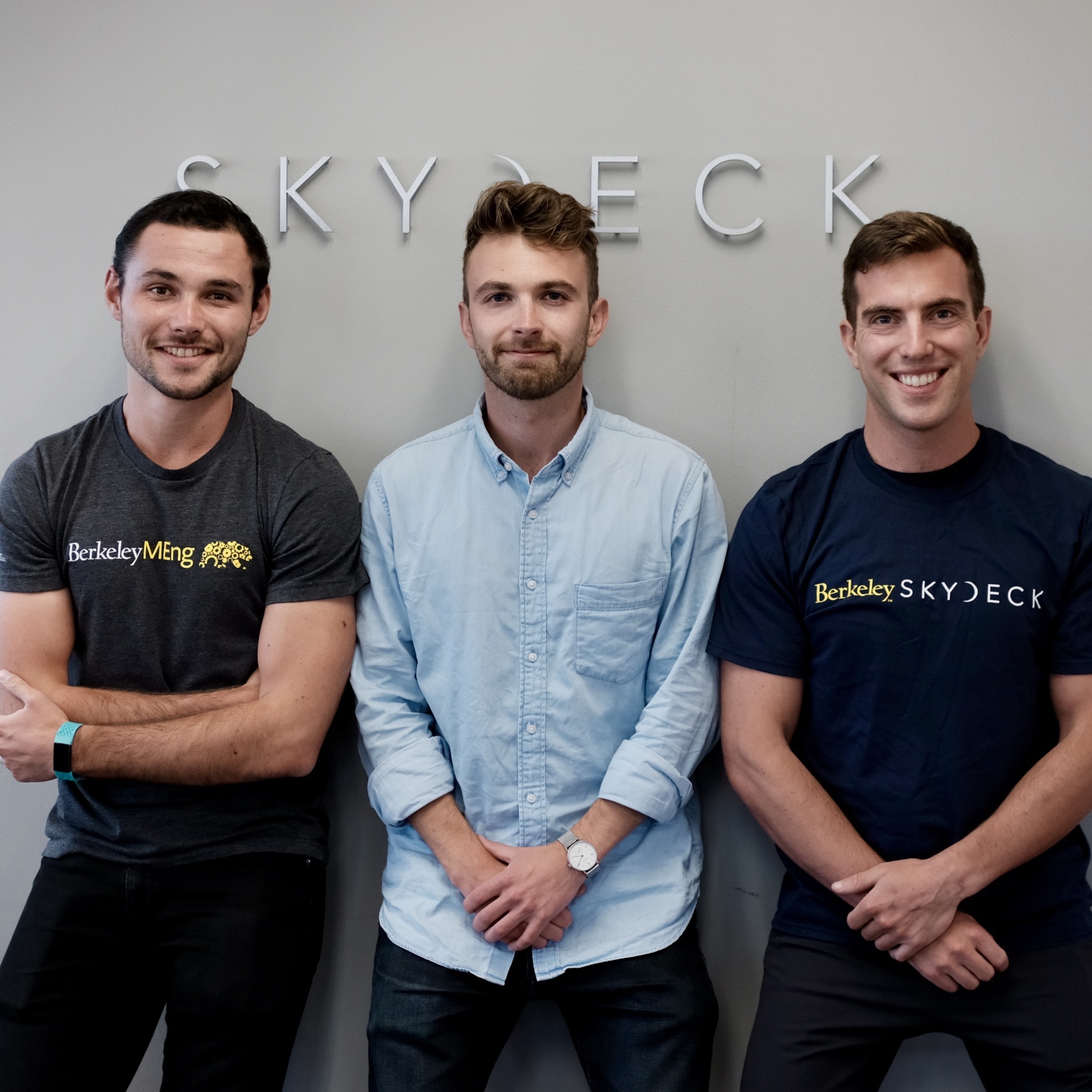The startup roundup series spotlights students and recent alumni who are starting a new business or enterprise.

Paz
Co-founders: Dennis Hauser, MBA 20, Neal Sarin, University of Miami, BA 12
UC Berkeley undergraduate interns: Shomil Jain, full stack developer; Melanie Cooray, project manager; Sonal Kapoor, UX/UI Designer; Ryan Kwon, A&R/marketing intern
Long before the coronavirus outbreak, Neal Sarin and Dennis Hauser, MBA 20, saw a need to bring restorative music that helps people relax and rejuvenate to the masses.
Before coming to Haas, Hauser was an investment banker who moved from New York to California to pursue his passion for music and entrepreneurship. Sarin, a University of Miami graduate, is a music executive and record producer who noticed the lack of industry interest in restorative music.
The two friends, who met in high school, decided to work on their own solution, which led to the launch of Paz, a restorative music app aimed to relieve stress and provide meditative benefits for listeners.
Users can now download Paz on the Apple App Store and listen to an hour of mantra-inspired music for free, no sign-in necessary. Once the free-trial ends, users can sign up for a free or a $2.99 monthly subscription.
“When we first started Paz, we thought college students would be our primary audience,” Hauser siad. “But I think in today’s current situation, it’s something that everyone could benefit from to take their mind off the challenges that we’re facing at the moment.”
I think in today’s current situation, it’s something that everyone could benefit from to take their mind off the challenges that we’re facing at the moment.

As the A&R director for JioSaavn, a South-Asian music streaming service, Sarin said he noticed that music executives weren’t investing as much energy and capital into the restorative music compared to mainstream markets like pop or hip-hop.
“We’ve been conditioned to view music as a means of entertainment, but music is also really healing and can provide a lot of comfort to people,” he said.
Scientifically proven benefits
What distinguishes the music on Paz from other ambient or restorative music is that it’s scientifically tested to have meditative benefits, Sarin said.
Paz co-founders worked with Robert Knight, a UC Berkeley psychology and neuroscience professor, and commissioned a study with Nielsen Consumer Neuroscience to scientifically test their music’s ability to reduce stress. The study found that research participants experienced a significant decrease in reported stress levels, an increase in memory activation, and a decrease in attention processing after listening to 10 minutes of Paz music.
“A lot of apps and people can claim that their music is restorative or it has meditative benefits, but it was really important for us to ensure that our music really does,” Sarin said.
While Sarin oversees the music production and curation for the app, Hauser handles the finances. They are working with Grammy-award winning mixing engineers and independent composers to produce the music and a team of UC Berkeley undergrads to build and design the app.

“Berkeley was a key resource in bringing [Paz] to life,” Hauser said. “It’s one of the few places in the world where you have support to build and create a business and find like-minded people who want to contribute and bring a vision to life.”
Sarin and Hauser have self-funded and will soon begin to raise funds to grow the business.
“We’re at a nascent stage in terms of the restorative music market,” said Sarin. “We want to grow Paz and be a dominant force as a restorative app.”

Thrive Education
Co-founders: Jack Rolo, CEO; Joshua Curry, COO; Meryll Dindin, CTO
Growing up, Jack Rolo, MBA 20, excelled at some things, like math and chess. He later went on to study physics in college. However, other things came less naturally, particularly reading and spelling.
After graduating from college, he was properly assessed and diagnosed with dyslexia.
“In hindsight, it was pretty obvious,” said Rolo. “However, at the time, the diagnosis was a ‘light-bulb’ moment. It made me look back on my life through a completely different lens.”
Once at Haas, Rolo teamed up with his roommate Joshua Curry, MBA 20, and Meryll Dindin, MEng 19, and co-founded Thrive Education, a telehealth startup that uses technology to improve evaluations for learning differences such as dyslexia, ADHD, and autism. Rolo said Thrive Education is his attempt to create the product he wishes he had as a child.
Increasing access to evaluations
In-person evaluations with psychologists are expensive and Thrive aims to cut costs, which run run as high as $10,000 with six-month waiting lists. Thrive Education partners with licensed psychologists and offers remote evaluations at a fraction of the price and wait time.
Early diagnosis is the key to enabling people with learning differences to fulfill their potential.
“Early diagnosis is the key to enabling people with learning differences to fulfill their potential,” said Rolo. “We’re increasing access to evaluations for those who have been ignored by the school system or priced out by independent psychologists.”
Thrive Education determines whether a student has a learning difference in three steps: a two-hour online assessment with a licensed psychologist, an interview with a psychologist and feedback on next steps and learning strategies, and an official diagnosis. That diagnosis can be used to request an Individualized Education Program (IEP), 504 Plan, or other reasonable accommodations in school or the workplace.
Technology is also a key element to Thrive Education’s business.
“We’re doing some really exciting stuff with data,” Curry said. “From increasing the accuracy and precision of diagnostics to better understanding learning interventions, our ambition is to revolutionize the scientific understanding of learning differences.”
So far, the team has secured venture pre-seed funding, in addition to grants from the Rudd Family Foundation Big Idea contest and EGAL’s Equity and Inclusion competition.
Rolo and Curry credit entrepreneurship lecturers Kurt Beyer and Steve Blank for Thrive’s early success. Beyer’s Entrepreneurship class and Blank’s Lean LaunchPad class helped build their business model, they said.
“These courses enabled us to make crucial pivots early on, almost acting as a simulation before we settled on our product and business model,” Curry said.
Deepak Gupta, a managing partner at Blue Bear Ventures and a Haas career advisor, also provided advice throughout their journey, they said.
Though their startup is in its infancy, the team aims to change the education industry forever. Thrive Education plans to formally launch this summer.